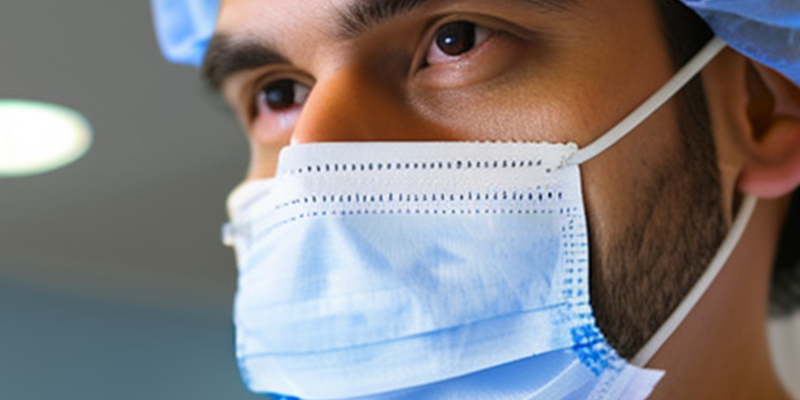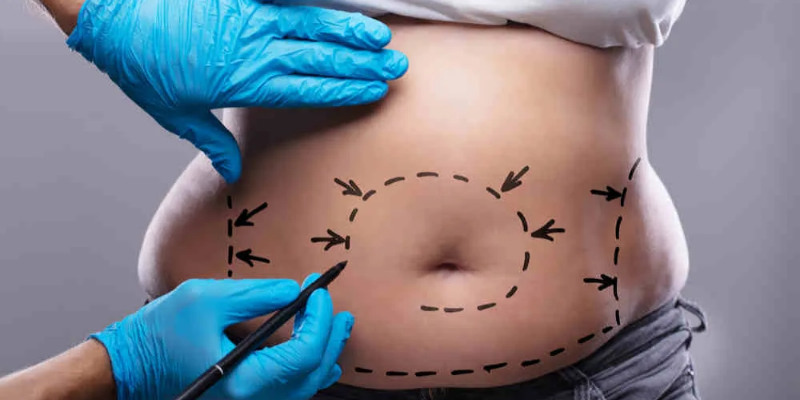Can Bipolar Peopleget Weightloss Surgery?
Can bipolar peopleget weightloss surgery? Even though there has never been proof of a cause-and-effect relationship, there is a strong link between obesity, depression, and bipolar disorder. Many of the drugs used to treat mental disorders can cause people to gain weight. Problems are made worse by the fact that many overweight people have low self-esteem.
Just like there is no single reason why people are overweight, there is no single way to improve health and emotional well-being. But there is some evidence that weight loss surgery can help people with bipolar disorder feel better about themselves. Recent studies have shown that when people with bipolar disorder had weight loss surgery, they lost a lot of weight, got healthier, and felt better about themselves. People who have had weight loss surgery, like Lap-band surgery, have a lower chance of dying from problems related to being overweight.
People with bipolar disorder did not have more bad things happen to them than the rest of the population. In other words, having bipolar disorder doesn’t make weight loss surgery more dangerous for you than it would be for someone who doesn’t have it.
How Can Bipolar Peopleget Weightloss Surgery?
Doctors have also heard anecdotal evidence that bariatric surgery has helped their bipolar disorder patients live better lives. When people lost weight, they seemed to feel better about themselves and be healthier overall. This seemed to make a big difference in their lives as a whole.
A study found that there is no reason why people with bipolar disorder shouldn’t be able to have the same weight-loss surgeries as other people. The study shows that there is no medical reason why bipolar patients can’t have the surgery. It also shows that bariatric surgery and similar procedures can help people lose weight. If the patient is stable, they can still have surgery and take care of themselves afterward.
It polled 144 people whose body mass indexes put them in the “severely obese” category (BMI). Every patient also had bipolar disorder, which was stable at the moment. During the two years of the study, 13 of the 144 people who had the surgery had to go to a psychiatric hospital. This was only 9%, which is a small number when you consider that 10% of the 1,440 people who did not have weight loss surgery got the same treatment.
What Comes Out To Bipolar People After Weight Loss Surgery?
When putting together the results of this study, a number of things were taken into account. It included the patient’s body mass index (BMI), any medications they take for bipolar disorder, their age, their race, and any other conditions they had. The results showed that there were no major risks after the surgery that needed a lot of psychiatric care. It also didn’t show that more people went to psychiatric outpatient offices during the study’s two years.
Before the study, people with bipolar disorder were thought to be more likely to commit suicide after surgery. However, this was not seen during the study. Those who had the surgery were less likely to die than those who didn’t. Should someone with bipolar disorder have surgery to lose weight? This study shows that there is no good reason to keep bipolar people from having weight loss surgery. There is no increase in side effects, psychotic episodes, the need for mental care, or suicidal tendencies. People with bipolar disorder who had bariatric surgery did not start using drugs more or become more dependent on them.
It does, however, help bipolar people who had emotional problems before they got fat because they had low self-esteem. This helps them in that way for sure.
Bipolar Disease And Emotional Eating After Weight Loss
Emotional eating can happen when there is a lot of stress or change going on. It’s all too common to use food as a distraction or to stop yourself from feeling bad. Studies show that 75% of the time people eat too much is because of how they feel. You might eat your favorite foods to calm down or deal with stress or worry. Ignoring your body’s natural signals that it’s full is bad for your health after surgery. Binge eating, snacking all the time, and using “comfort foods” to calm down are all bad habits, especially after bariatric surgery.
Getting used to your new life after surgery is a big mental and physical change. Your diet restrictions and how much your body has changed can make you feel overwhelmed. Even if your body seems better after weight loss surgery, your mind may need some time to catch up. You might have to deal with changes in your relationships, worry about your new diet, and feel less sure of yourself. To get the most out of any weight loss surgery, you must deal with these problems in a healthy way.
How To Tell If You Eat For Emotional Reasons?
Change the way you eat based on how stressed you are. Since you just had surgery to help you lose weight, you may be feeling more stress or anxiety. You might snack more during the day to help you deal with problems that come up. Even though it may not seem like much, snacking can lead to binging on high-calorie and high-fat foods. This can make it harder for you to lose weight after surgery.
Using food as a way to motivate or reward someone. After a hard day at work, you might want a bowl of ice cream or your favorite candy bar. But giving yourself extra food as a reward is just another way to get yourself to eat too much.
Diet After Weight Loss Surgery
Keep track of what you eat. If you write down what you eat, it’s easy to keep track of and stick to your post-surgery diet. Make a note of how you felt when you ate. If you start to realize that you are eating for reasons other than hunger, you can change your habits.
Find support groups for your feelings. After bariatric surgery, it’s okay to feel worried or stressed. Just remember, you’re not alone.
How To Keep From Eating Out Of Emotion After Weight Loss Surgery?
Emotional eating is a quick way to solve a short-term problem. It is important to find healthy ways to deal with the everyday stresses of life after surgery. Even if you lose a lot of weight through surgery, you will need to make permanent changes to your lifestyle to keep your new body.
Can You Drink Fizzy Drinks After Gastric Sleeve Surgery with Sugar?
“Can you drink fizzy drinks after gastric sleeve surgery with or without sugar?” is a frequently asked question by gastric sleeve patients. Drinking fizzy drinks after gastric sleeve surgery is possible, but it should be done in moderation. While the carbonation and sugar content of fizzy drinks may not affect the stomach, the fluids can quickly fill up the smaller stomach pouch and cause bloating or discomfort. To prevent this, it is vital to drink fizzy drinks in moderation and alternate with other liquids such as water or unsweetened tea.

It is also important to note that drinking fizzy drinks after a gastric sleeve can be counterproductive, as these beverages are often high in sugar and can lead to weight gain. It is therefore recommended that individuals who have had a gastric sleeve opt for healthier alternatives, such as water or low-calorie sparkling drinks.
“Can you drink fizzy drinks after gastric sleeve surgery with caffeine? People who have had gastric sleeve surgery should not consume energy drinks or other caffeinated beverages due to their high caffeine content. Instead, consider switching to low-calorie options such as sparkling water or low-sugar tea. Your doctor or healthcare provider can provide additional advice on “why can t you eat and drink after gastric sleeve?” and what types of beverages are acceptable.



